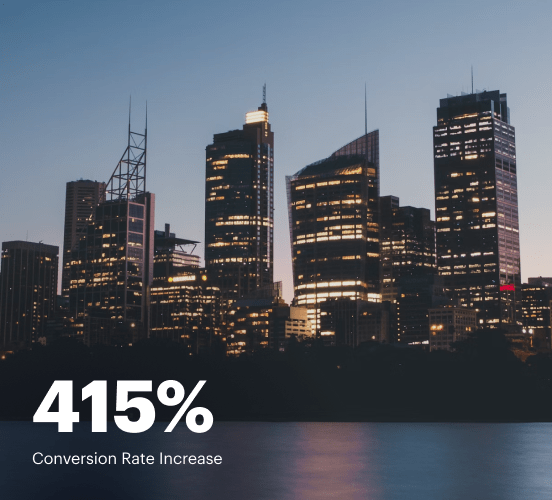Emma vs. Drupal: the best platform for a seamless web experience
Discover how Emma compares to Drupal regarding features and usability. Find out which platform provides the competitive advantage your business deserves.
Get startedSee how Instapage stacks up against the competition
| Feature | Instapage | Other builders |
| Drag-and-Drop Tools | ||
| Conversion-optimized templates | ||
| Manual and AI-powered A/B Tests | ||
| AI content suggestions | ||
| Popups and sticky bars | ||
| Canvas and grid blocks | ||
| Reusable and global elements | ||
| Form and popup builders | ||
| Built-in Heatmaps | ||
| Central analytics dashboard | ||
| Ad-to-page personalization and collections | ||
| Contacts, lists, and email | ||
| Dedicated, full-service CRO experts | ||
| Enterprise-ready platform |
Leading the way in building high-performing landing pages





Why Instapage is the smarter choice for your campaigns
Get everything you need to build, scale, and optimize high-converting landing pages—without coding.
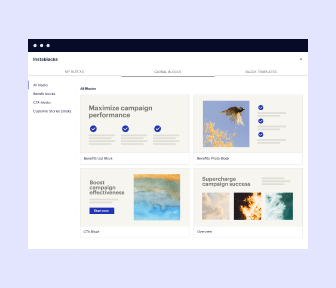
Easier page building without coding
Instapage offers a flexible and seamless page creation experience with a library of 500+ conversion-focused layouts, Instablocks®, a drag-and-drop builder, and AI content generation. With technologies like Thor Render Engine®, you can create on-brand, mobile-responsive landing pages that load quickly and start converting during initial visitor clicks.

More insights — better results
Instapage lets you see in detail how each landing page experience and variation is performing so you can make targeted changes that boost page conversions. Use heatmaps for a better understanding of on-page activities, run A/B tests and AI-assisted experiments, and then track and evaluate results within robust analytics dashboards.

More personalized experiences
Instapage lets you quickly create high-performing landing pages tailored to each of your ad campaigns. Deliver personalized experiences for distinct audiences using dynamic text replacement. Effortlessly align specific advertisements to unique pages with AdMaps. Monitor audience-level metrics using our advanced data tools.
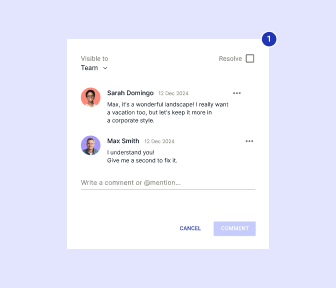
Built-in collaboration
Instapage collaboration capabilities bring your entire team together to speed up the process of landing page review, approval, and launch. No more frustrating and unnecessary revisions or edits scattered across emails. Provide instant feedback, conduct real-time page edits, and securely share your pages with outside stakeholders.
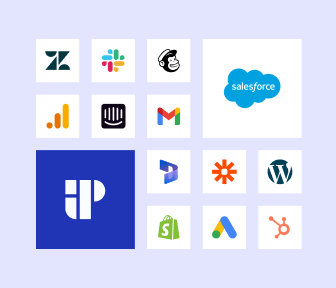
Free up time for your business
Invest time into business growth, not busy work. Launch landing pages faster with reusable forms and templates. Build once, reuse forever.
Explore all integrations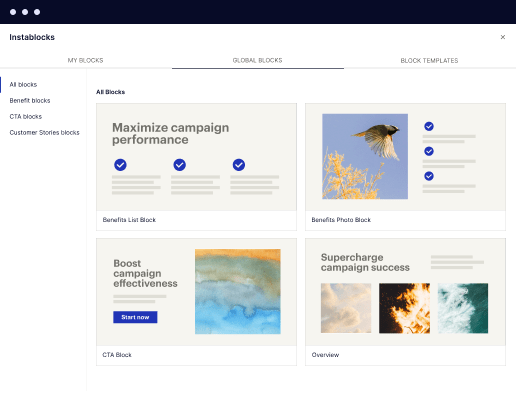
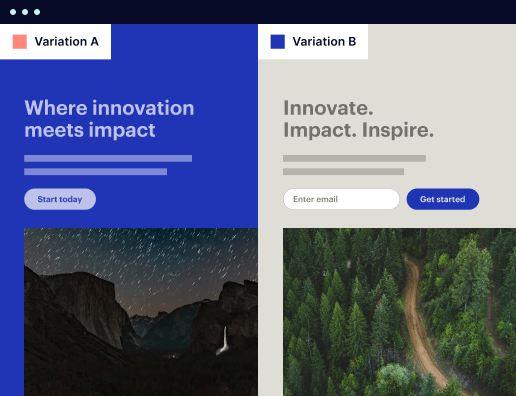
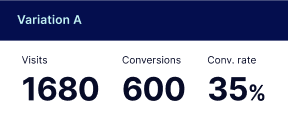
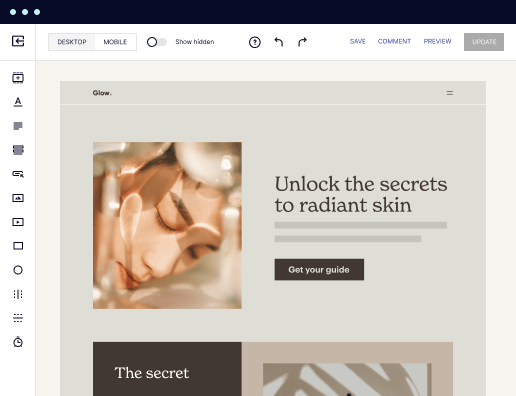

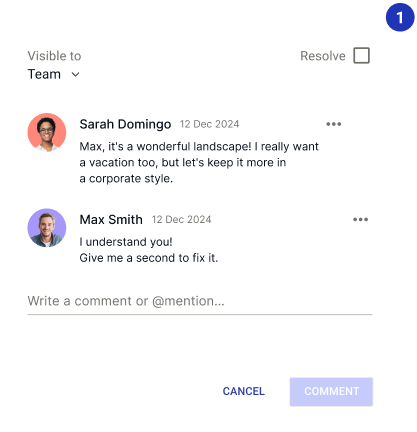
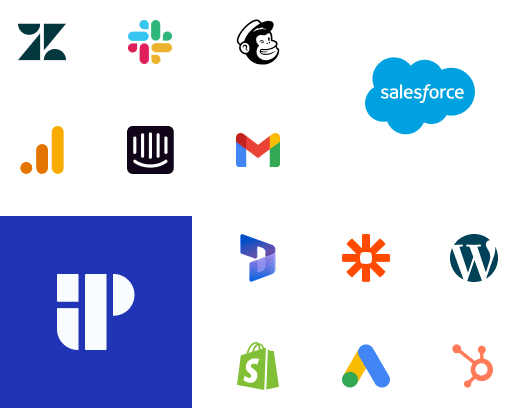
Easier page building without coding
Instapage offers a flexible and seamless page creation experience with a library of 500+ conversion-focused layouts, Instablocks®, a drag-and-drop builder, and AI content generation. With technologies like Thor Render Engine®, you can create on-brand, mobile-responsive landing pages that load quickly and start converting during initial visitor clicks.
More insights — better results
Instapage lets you see in detail how each landing page experience and variation is performing so you can make targeted changes that boost page conversions. Use heatmaps for a better understanding of on-page activities, run A/B tests and AI-assisted experiments, and then track and evaluate results within robust analytics dashboards.
More personalized experiences
Instapage lets you quickly create high-performing landing pages tailored to each of your ad campaigns. Deliver personalized experiences for distinct audiences using dynamic text replacement. Effortlessly align specific advertisements to unique pages with AdMaps. Monitor audience-level metrics using our advanced data tools.
Built-in collaboration
Instapage collaboration capabilities bring your entire team together to speed up the process of landing page review, approval, and launch. No more frustrating and unnecessary revisions or edits scattered across emails. Provide instant feedback, conduct real-time page edits, and securely share your pages with outside stakeholders.
Free up time for your business
Invest time into business growth, not busy work. Launch landing pages faster with reusable forms and templates. Build once, reuse forever.
Explore all integrationsGet started with Instapage in a few steps
-
Create your Instapage account
Start with Instapage by signing up via Google or your email. You'll get access to a free 14-day trial to discover Instapage capabilities. Feel free to cancel anytime during the 14-day trial if you decide that our product is not suitable for your business. -
Build and personalize your page
Create your first landing page from scratch or choose a template from 500+ customizable layouts. Use the drag-and-drop builder to add page elements, fonts, and backgrounds, refine content with AI, or add custom HTML, Javascript, and CSS. -
Review and make edits
Collaborate on page designs and streamline review processes. Invite your team members and stakeholders to review, edit, and provide feedback on your landing page. Collaborate knowing your page is confidential and only accessible to authorized users. -
Publish and track page performance
Publish your page to a domain or custom URL. Connect your pages to the ads you've created and track page performance within the analytics dashboard, run A/B tests and AI experiments, analyze results, and continuously optimize your landing page to maintain high conversions.
Emma vs. Drupal: The Showdown of Digital Marketing Titans
As the digital marketing arena becomes increasingly crowded, marketers find themselves navigating a sea of landing page builders. Emma and Drupal stand out as the heavyweights in this competitive landscape. Emma, a specialist in email marketing and design, has built a reputation for its intuitive user interface and creative flexibility. On the other hand, Drupal, known for its robust content management system, caters to more complex website needs, offering unprecedented customization capabilities. Both platforms strive to offer unique solutions tailored to businesses' evolving marketing needs. But as we dive deeper into their features and nuances, we discover new contenders lurking in the wings, such as Instapage, which may offer surprising advantages in this ongoing battle. This showdown is not merely about functionality; it's about which platform can empower marketers to reach their highest potential while adapting to a rapidly changing online landscape. The world awaits to see who will emerge victorious – Emma, Drupal, or perhaps another unexpected champion.
Introducing the Competitors
In this corner, we have Emma, a platform that prides itself on providing a seamless blend of design and functionality. With a host of templates and user-friendly tools, Emma empowers marketers and business owners alike to create visually stunning campaigns in record time. Meanwhile, in the opposite corner, we have Drupal, the heavyweight champion of content management. Renowned for its versatility, this powerful open-source platform can handle everything from small blogs to massive enterprise websites. Each contender showcases its unique strengths, making them formidable foes in the marketing ring. Emma excels in its email marketing capabilities, while Drupal shines with its comprehensive content management functionalities. But don't forget, Instapage is lurking nearby, a platform designed explicitly for creating optimized landing pages that convert – perfect for businesses seeking a dedicated focus on conversions.
Feature Face-Off
In this round, we explore the key features of both Emma and Drupal. Emma leads with its user-friendly email marketing features, making it a breeze for users to integrate engaging visuals into their campaigns. Personalization is where Emma truly excels, allowing marketers to segment their audience effectively. Drupal, though more complex, offers unparalleled customizability, enabling businesses to create tailored solutions that reach their audience in meaningful ways. Both platforms might be considered pretty heavyweight contenders in this match, but Instapage is backstage, warming up with its exceptional landing page capabilities. A robust suite of tools designed for focused conversion tactics makes it an attractive alternative many marketers might favor. As we navigate this feature showdown, it becomes evident that each platform brings a unique value proposition to the table, setting the stage for a detailed examination of usability in the next round.
User Experience Showdown
When it comes to usability, both platforms cater to different audiences. Emma shines as a user-friendly solution, perfect for those just starting in digital marketing; its intuitive interface guides users step-by-step through the creation process. In contrast, Drupal can be seen as a more advanced platform, allowing seasoned marketers and developers to flex their creative muscles with its intricate customization options. It's often said that learning Drupal is less of a chore and more of an adventure – one that can be worthwhile for those willing to invest their time to reap the rewards. For marketers looking for simplicity and speed, Emma’s approach feels like a friendly nudge, while Drupal’s complexity might feel like a rabbit hole worth exploring. Regardless of the learning curve, both platforms aim to empower their users to succeed.
Emma's User-Oriented Features:
- Drag-and-drop email builder for easy design
- Extensive template library for various campaigns
- Advanced audience segmentation capabilities
- Integrated analytics for real-time performance insight
- A/B testing to optimize email campaigns
Drupal's Customization Features:
- Extensive modules for added functionality
- Powerful content creation and management options
- Multi-language support for global reach
- Flexible taxonomy structures for content organization
Common Strengths Shared by Both Platforms:
- Strong focus on user engagement
- Customizable templates and assets
- Analytical tools for tracking performance
- Mobile responsiveness to enhance user experience
- Dedicated support communities for troubleshooting
- Integration capabilities with third-party tools
In this competitive ring, it’s clear that both Emma and Drupal pack a punch. Yet, the spotlight shifts to Instapage, which positions itself as a valuable competitor, emphasizing its specialized focus on landing page creation. For any business looking to maximize its marketing potential, exploring what Instapage has to offer could unveil a hidden gem.
Speed and Performance Clash
This round brings us to page loading times and mobile responsiveness, two critical factors for any online platform. Slow-loading pages can deter users faster than anything – think of it as molasses in winter: nobody's got time for that. Emma typically boasts quick load times, ensuring users can rapidly engage with their email content. On the flip side, Drupal's flexibility can sometimes lead to slower performance if not optimized correctly, especially for larger sites packed with features. However, when properly configured, Drupal can deliver remarkable speeds, rivaling many competitors. Mobile responsiveness is essential as well, with both platforms striving to provide seamless experiences across devices. In the end, businesses must carefully consider how performance can impact their overall marketing strategy. Instapage, too, excels in this area, allowing users to create fast, optimized landing pages that convert.
Support Team Showdown
Support resources play a crucial role in the success of any platform. Emma prides itself on its responsive customer support, offering various channels, including chat and email. Their support team is known for its friendly and helpful demeanor, acting as a reliable companion for users needing assistance. Meanwhile, Drupal relies heavily on its vibrant community forums, where developers and users collaborate to solve issues and share knowledge. This support style is excellent for those who enjoy community-driven solutions but can be daunting for new users unfamiliar with the platform. As this round wraps up, it's essential to weigh how each platform's support approach aligns with your unique needs and preferences.
The Pricing Showdown
Emma's Competitive Pricing Advantages:
- Flexible tiered pricing plans based on user needs
- Free trial period to test the platform's capabilities
- Transparent pricing with no hidden fees
- Value for money with robust feature sets
Drupal's Pricing Structure Advantages:
- Open-source nature allows for no initial upfront cost
- Customization potential means you can pay for only what you need
- Scalability as you grow – pay for additional features as required
- An abundance of resources available to help reduce costs
When considering pricing strategies, Emma takes the lead with competitive plans that prioritize user needs and offer transparency. In contrast, Drupal’s open-source nature provides a low entry barrier for businesses just starting but can escalate with advanced functionalities. Exploring Instapage reveals a flexible pricing approach ideal for businesses valuing specialized landing page solutions that deliver undeniable value for money.
As we dissect pricing plans, it's essential to note that good value doesn’t always have to come at a cost. Each platform carries unique strengths, and the pricing differences can often reflect their target audience’s priorities. By understanding the pricing landscape, marketers can better choose a platform to suit their budget and objectives.
But What About Instapage?
Introducing Instapage, designed as the game changer for marketers focused on landing page optimization. This platform has been silently studying the playing field, waiting for the perfect opportunity to step in and present an unmatched offer. With advanced A/B testing capabilities and a design-centric approach, Instapage specializes in ensuring your landing pages convert visitors into leads. Its user-friendly interface allows marketing teams to execute campaigns quickly and efficiently, making it a game-changing alternative for those needing specialized solutions. Where Emma and Drupal shine in their own right, Instapage meets a niche requirement that could undeniably elevate a marketer’s game. By considering Instapage, businesses unlock the potential for heightened conversions that the other two may struggle to match. This provides a distinct advantage that should not be overlooked, based on every marketer's unique goals.
As we wrap up this comprehensive comparison, remember that each platform offers unique solutions catering to various marketing needs. The power lies in understanding your business goals and aligning with the right tool to propel your marketing initiatives. Marketing success is about making informed choices and recognizing the unique strengths each platform offers. By exploring Instapage alongside Emma and Drupal, you set yourself up for success in navigating the complex digital landscape.


